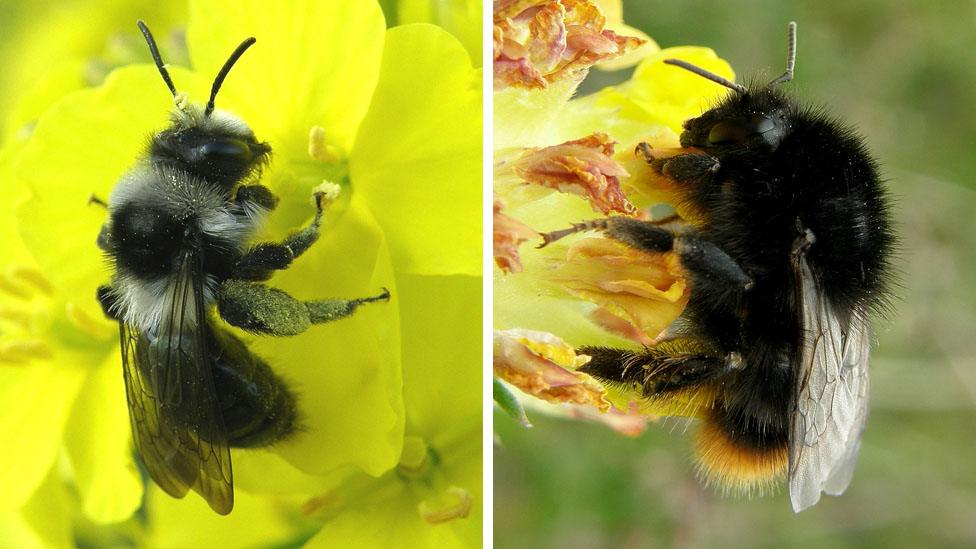Lincolnshire beekeeper says public needs to help starving bees
- Published
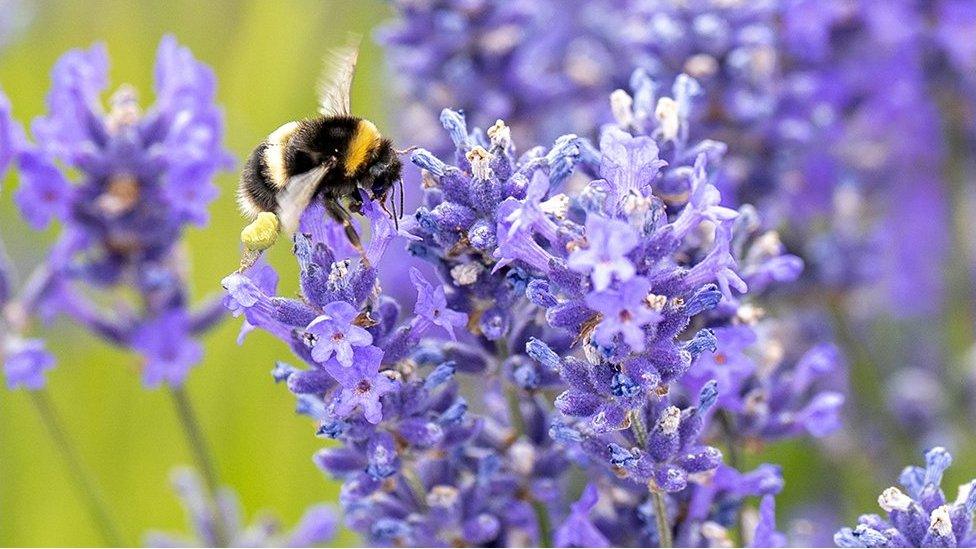
The British Beekeepers Association said a wet and cold April has led to bee colonies starving to death
A Lincolnshire beekeeper said he was devastated after most of his bees starved to death.
John Murray, who lives in a village near Spalding, has lost four of his five hives.
Mr Murray said the cold and wet April had left the bees unable to collect pollen, leaving them weak after the winter.
"We've had an elongated wet spell and they've just starved," he said.
He urged people to help by putting out shallow bowls of sugared water to allow bees to feed.
He added: "Once a bee gets wet it dies. A lot of people want to help but we need more."
Mr Murray said he was concerned that bad weather along with pesticides used in farming was causing problems for the future.
The government recently approved the use of neonicotinoids which are toxic to pollinating bees, disrupting their ability to navigate and reproduce.
It was previously banned, but reintroduced following an outbreak of a virus in sugar beets.
"There is a delicate balance from insects to humans," Mr Murray added.
"If you take away the groundwork of the pollinator.
"We are wiping out the very creature that provides food for us through pollination"
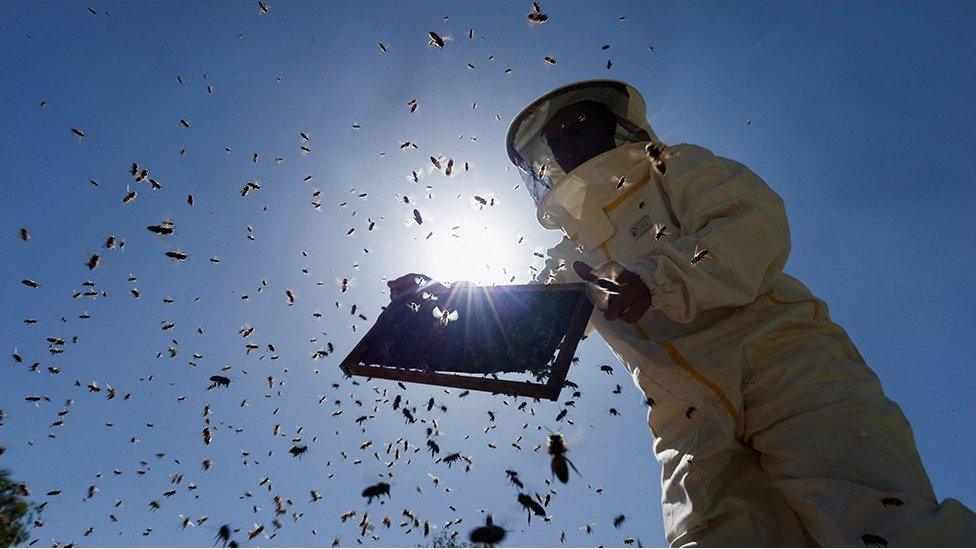
The government's National Bee Unit has contacted beekeepers about the issue
The government's National Bee Unit has put out a bulletin to beekeepers. It warned: "Bee inspectors across England and Wales have observed a decline in food stores for some colonies of bees following recent wet weather.
"Our National Bee Unit has been in touch with registered beekeepers and encouraged them to monitor their colony food levels closely and to consult our published advice on the best practice for feeding bees."
Ian Campbell, from the British Beekeepers Association, said the problem was UK wide.
He said a wet and cold April had caused "concern a lot of bee colonies are close to the edge".
He said: "Bees only fly when it is warm and most of April was below normal temperatures.
"Wet weather has affected the big field of crops such as rapeseed.
"We build up our colonies to get them through winter. By April the wildflowers provide a significant amount, but not this year."

Follow BBC East Yorkshire and Lincolnshire on Facebook, external, X (formerly Twitter), external, and Instagram, external. Send your story ideas to yorkslincs.news@bbc.co.uk, external
Related topics
- Published7 March 2024
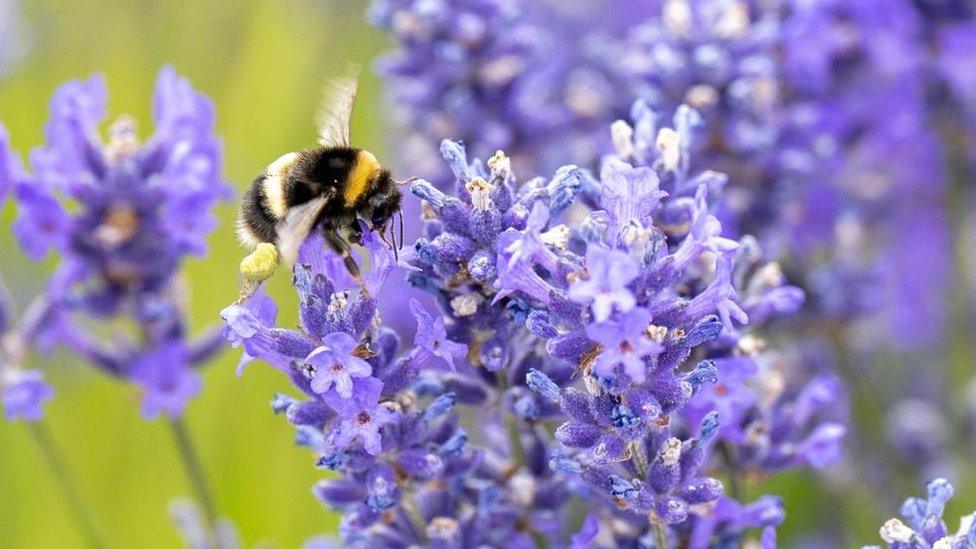
- Published18 January 2024
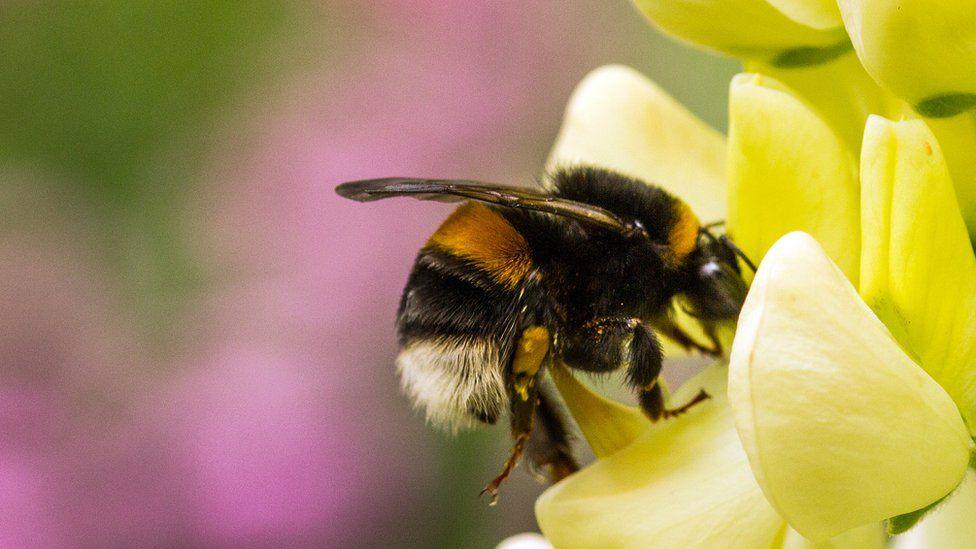
- Published25 September 2023
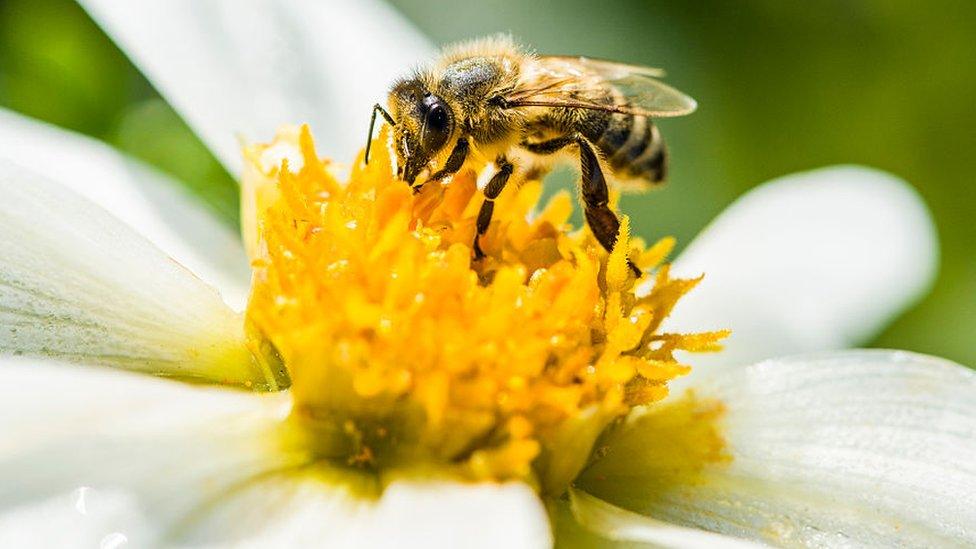
- Published26 March 2019
